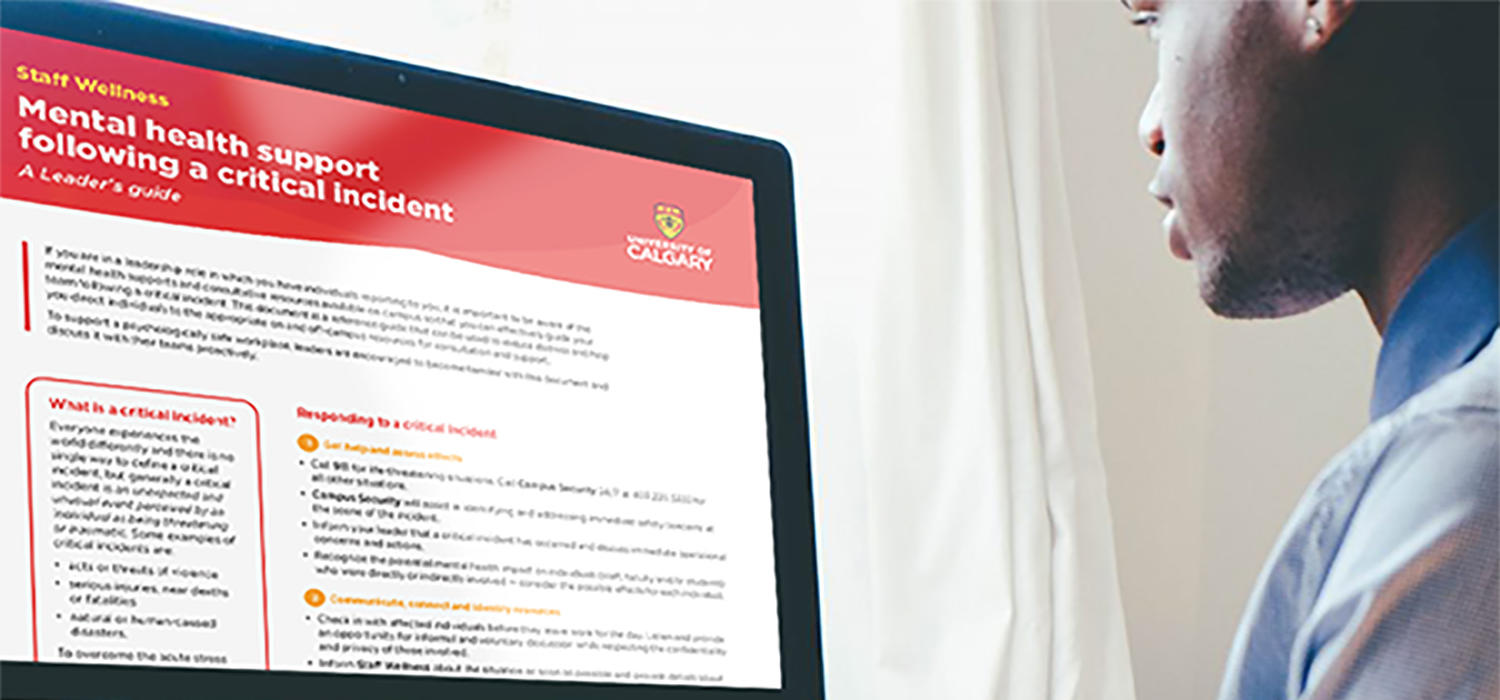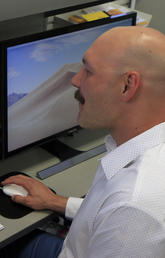Aug. 8, 2019
New leadership guides support staff and faculty through tough workplace situations

Staff Wellness has developed two guides for UCalgary leaders to use when they encounter infrequent but serious situations like impairment in the workplace and responding to critical incidents.
“Impairment in the workplace and critical incidents are not common situations at the university, but leaders need this kind of information to ensure they are effectively supporting their employee, their team and the overall organization,” Darren Ferleyko, director of Staff Wellness, says.
Impairment in the workplace
The first document, Impairment in the workplace, was developed as a resource to help leaders understand their responsibility to recognize and respond to the signs of impairment.
Impairment, Ferleyko explains, is defined as diminished physical and mental abilities that may be temporary, long term or permanent, which affect an employee’s ability to work. Some causes of impairment are:
- side-effects of medication
- fatigue from lack of sleep or stress at home
- response to traumatic experiences
- personal crisis
- substance use or abuse
“Impairment is not always a result of drugs and alcohol,” Ferleyko says. “Leaders need to be aware of the signs of an employee who might be putting themselves or others at risk due to impairment.”
Many organizations have drug and alcohol policies, but Ferleyko says UCalgary’s leader guide is unique in that it provides leaders with a practical step-by-step process to have a respectful, supportive conversation that benefits everyone.
Mental health support following a critical incident
Because of Amanda Habiak’s role as occupational health nurse and mental health consultant with Staff Wellness, she is called on to help on the rare occasion when someone in the campus community has experienced a critical incident — which can be anything from the death of a colleague, traumatic accident, terminal illness of an employee, and threats or acts of violence.
With experiences like that in mind, the second reference guide — Mental health support following a critical incident — was created for leaders to thoughtfully and quickly support individuals, and help them find the on-campus and off-campus resources they need after a critical incident in the workplace.
“I wanted to have a document that was easy to access, easy to read, and provide very clear steps from a mental health perspective on how leaders can support the individual and the team,” Habiak says, adding that the document went through a significant amount of stakeholder feedback before it was approved for leadership use.
But to Habiak, the true intention of this document is to encourage leaders to check in with their employees, provide opportunities for teams to come together and get the help they need it.
Learn more about these leadership guides.



